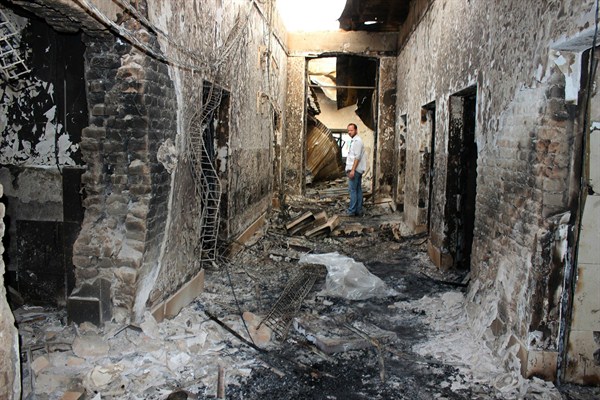Once taboo, the targeting of hospitals and health care providers in wartime has become such a frequent occurrence in today’s conflict zones that Doctors Without Borders, the humanitarian aid organization that goes by its French acronym MSF, now calls it the new normal. Attacks that previously seemed to occur unintentionally or sporadically now appear to be a deliberate strategy of war. This is particularly the case in Syria and Yemen, where hospitals and doctors are targeted so often that medical care now has to be provided in places such as caves and chicken coops in order to avoid detection by warring factions.
The effect that these attacks have on those caught in wars and on humanitarian action is nothing short of devastating. As MSF International President Joanne Liu powerfully declared to the United Nations Security Council in May 2016 regarding a 2015 U.S. strike on an MSF hospital in Kunduz, Afghanistan, “[these attacks] demolish routine and lifesaving healthcare for all. They make life impossible. Full stop.” When the Security Council passed a resolution demanding enhanced protection for health care workers during armed conflict, U.N. Secretary General Ban Ki-moon stated, “All too often, attacks on health facilities and medical workers are not just isolated or incidental battlefield fallout, but rather the intended objective of the combatants. This is shameful and inexcusable.”
To understand the legality around and consequences of these tragic events, one must first examine the laws that protect hospitals and medical-care providers during war, as well as the reasons why these possible war crimes are occurring in the Syrian and Yemeni conflicts. The picture that emerges of the impact that the intentional targeting of the health infrastructure has on humanitarian action should serve as a call to action to the international community.

